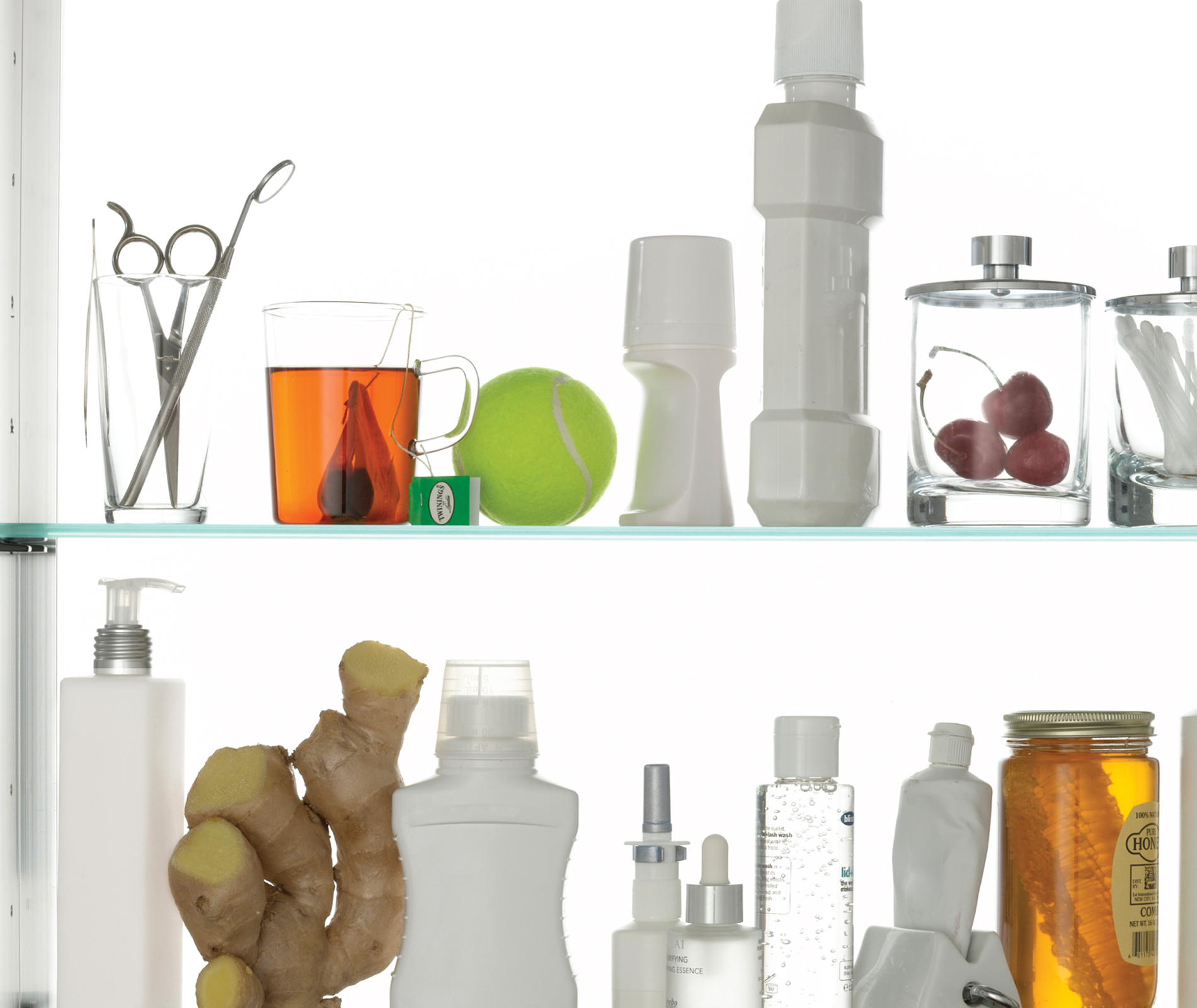What Vitamins Are In Your Medicine Cabinet?

Holistic pharmacist Sherry Torkos, author of The Canadian Encyclopedia of Natural Medicine, uses her training in both conventional and complementary medicine to educate us on how to integrate the two.
Q What are the five most common ailments for the 45-plus age group and what natural medicines would you recommend to treat them?
A As people age, they are at greater risk for colds and flu. Shorten their duration with Cold-FX Extra Strength, soothe a sore throat with zinc lozenges and boost the immune system with Immunity-FX and vitamins C and D.
• Urinary tract infections (UTIs) are the second most common infection after respiratory tract infection in women over 50. Cranberry juice or supplements with Cran-Max, effectively treat UTI by preventing bacteria from sticking to the bladder wall.
• Constipation and diarrhea as side effects of medications are something I see often as a pharmacist. A probiotic supplement, such as Kyo-Dophilus or Bio-K+, containing friendly bacteria, helps regulate intestinal function and helps both constipation and diarrhea.
• Older Canadians tend to travel more and if they have problems with nausea brought on by a car, plane or boat, I recommend gingerroot, ginger tea or tablets, or real ginger ale, such as Reed’s Ginger Brew (available in health food and specialty grocery stores). Ginger contains anti-inflammatory compounds called gingerols, which can help soothe the intestinal tract and relieve motion sickness, dizziness, nausea and gas.
• Insomnia is much more common as we age. Suntheanine, a form of the amino acid L-theanine, helps promote relaxation and improve sleep quality. Sleep problems due to jet lag and shift work can be treated with melatonin; the herb valerian can also help improve sleep.
Q Can you take natural supplements with prescription medications?
A That depends. Some natural products can be taken with prescription medications to optimize therapy and compensate for drug-induced nutrient depletion. For example, statin drugs like Lipitor and Crestor deplete coenzyme Q10 (Co Q10), a strong antioxidant essential in the production of energy and in the normal metabolism of fat and energy. Supplementing with Co Q10 offsets that interaction and helps prevent side effects. In other cases, a natural product can interfere with the efficacy or safety of a drug. For example, some products such as ginkgo biloba and vitamin E can increase the risk of bleeding in those taking warfarin (Coumadin). If you are taking medication or have any health conditions, always check with your pharmacist before taking supplements, to avoid potential interactions.